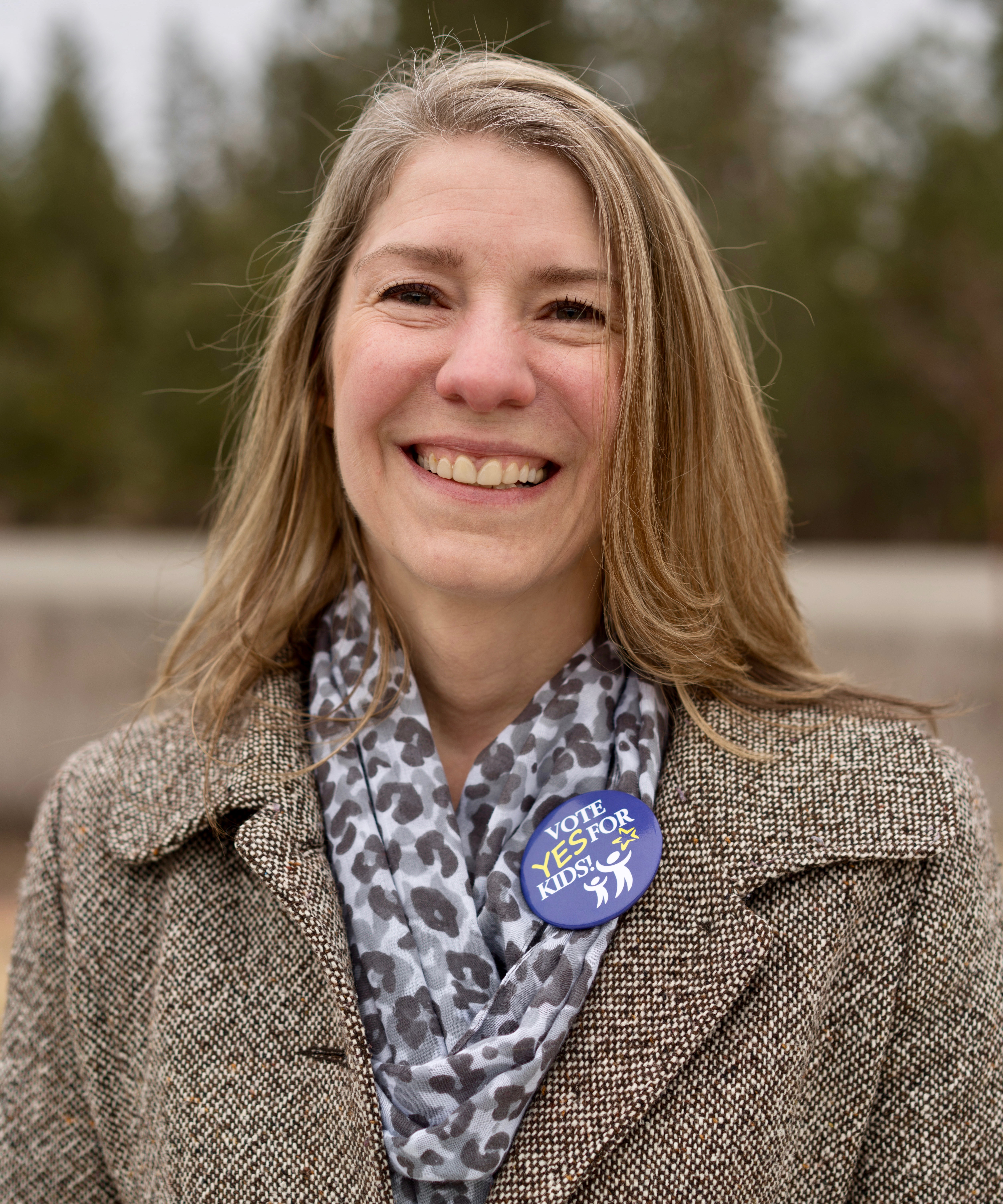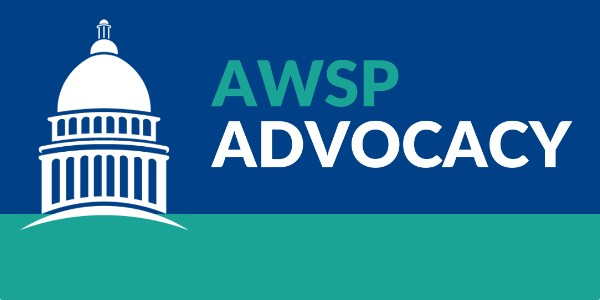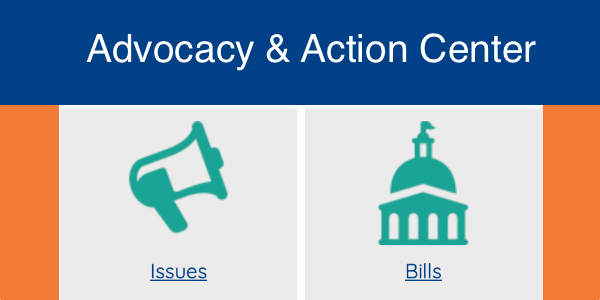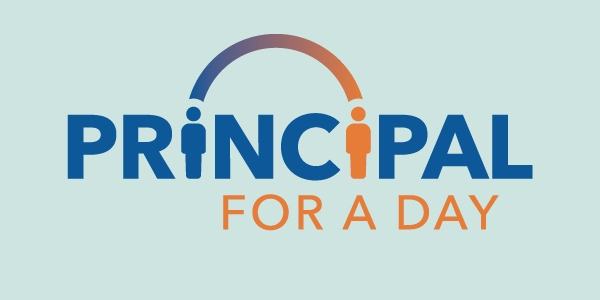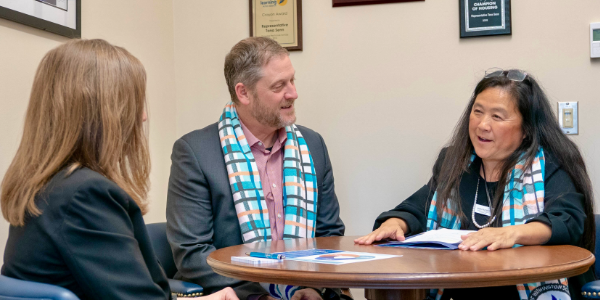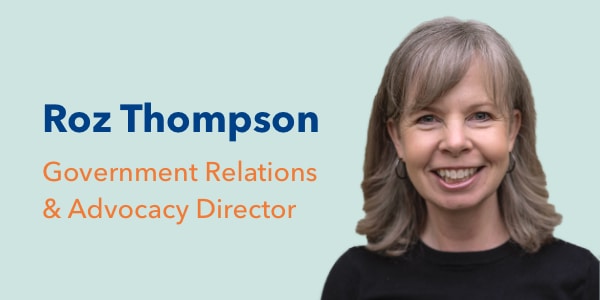It was a busy week of floor action in both the House and the Senate. There were several late-night sessions and the Legislature will be busy all weekend as lawmakers and staff work to pass any remaining bills out of the opposite house before cutoff on Sunday, April 11, at 5 pm. Any remaining bills or matters that are “necessary to implement budgets, differences between the houses, and matters incident to the interim and closing of the session” will continue to be addressed up until the final day (sine die) of this year’s session which is expected to be Sunday, April 25.
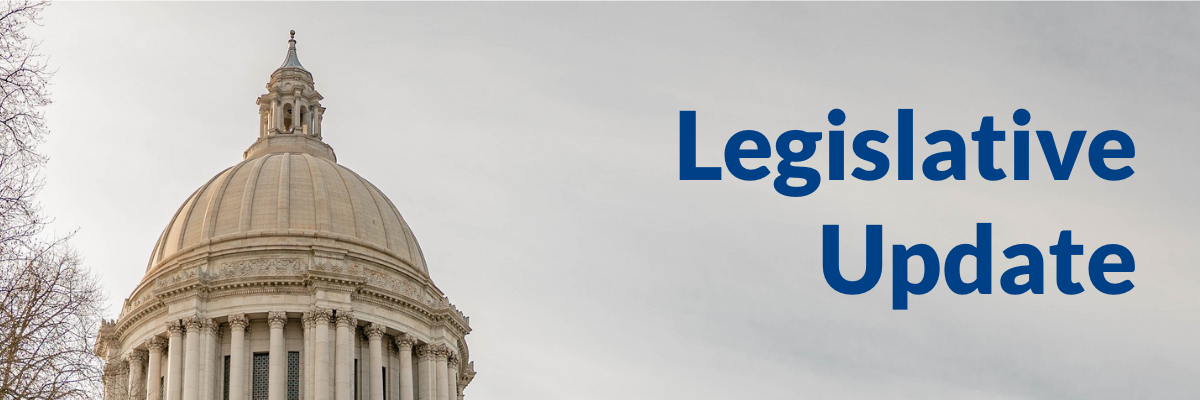
It was a busy week of floor action in both the House and the Senate. There were several late-night sessions and the Legislature will be busy all weekend as lawmakers and staff work to pass any remaining bills out of the opposite house before cutoff on
Sunday, April 11, at 5 pm.
Any remaining bills or matters that are “necessary to implement budgets, differences between the houses, and matters incident to the interim and closing of the session” will continue to be addressed up until the final day (sine die) of this
year’s session which is expected to be Sunday, April 25.
Our advocacy efforts this week were focused on sending messages to legislators regarding the final agreements between the House budget proposal (HB 1094)
and the Senate budget proposal (SB 5092), as well as encouraging them to act on specific bills.
We communicated these main points to legislators which were crafted by our partners in the School Funding Coalition:
Enrollment Stabilization/Base Funding: The Senate proposal provides $192 million for a $1,500 per pupil floor. This additional state funding would supplement the federal funds. This funding floor approach provides a base level
of added funding for schools and helps those districts that receive little or no ESSER funds. Our hope is that this baseline amount provides enough funding for districts that lost enrollment and as a result will lose funding for all of those
enrollment-based programs (LAP, TBIP, special ed, etc.). We appreciate the House language from HB 1476 (enrollment stabilization)
that corrects future funding formula problems related to pandemic enrollment numbers. As you reach a compromise, please allow districts discretion on how best to meet student needs using this one-time funding. We prefer the Senate approach
of providing a base level of state funding to support all school districts and the House language fixing future year funding formulas.
Transportation Stabilization Funding: The Senate provides $356 million for transportation, subject to the passage of SB 5128.
This investment in state funds allows school districts to maintain a viable transportation system as we work to get all of our students back to in-person learning. There were many concerns about SB 5128 as it passed off the Senate floor and
some of those issues are reflected in the restrictions identified in the budget. We would like to work with you to address the concerns with SB 5128 and the budget language to ensure transportation stabilization dollars are available for districts
that need it. Please consider funding at the Senate level and clarifying the implementation process for OSPI to distribute funds.
Learning Recovery and Acceleration Support: The House provides $143 million of federal funds for OSPI grants to address learning loss and for summer and after-school programs. The House budget also provides $72 million is provided
for grants from OSPI to community-based organizations, dual language programs, balanced calendars, CTE, and other items. The House proposal provides the most flexibility and allows OSPI to prioritize highest priority needs. We support this
approach.
In the remaining few days of the session, budget negotiations take place behind closed doors and there will be all kinds of compromises and deals made. K–12 funding is at least half of our state’s budget, so it is a very significant part of
these discussions, but the Legislature is also working on other critical issues this session like housing, climate change, transportation, police reform, a potential capital gains tax, and other issues.
Any messages we can continue to send about what our students, staff, families, and schools need to remain stable and to recover opportunities as we move through this pandemic are still important.
If you are interested and able to advocate with your legislators, feel free to use any of the above statements in your messages to them. A short email to your legislators that shows your support for any or all of these issues, as well as mentioning other
supports for students like additional counselors or mental health supports, etc. would be greatly appreciated. Your personal stories to lawmakers make a difference! Here’s a link to find their contact information.
Here is the list of bills that have either passed both the House and the Senate or that may still be passed by Sunday, April 11:
House Bills in the Senate:
- HB 1028 | Repealing the EdTPA
- HB 1085 | Students with seizure disorders
- HB 1113 | Concerning school attendance
- HB 1121 | Emergency graduation waiver
- HB 1139 | Taking action to address lead in drinking water
- HB 1176 | Access to higher education (fines and fees)
- HB 1208 | Modifying the learning assistance program
- HB 1214 | Providing K–12 public school safety and security services by classified staff
- HB 1225 | School-based health care centers
- HB 1273 | Concerning menstrual products in schools
- HB 1295 | Concerning institutional education
- HB 1302 | Concerning college in the high school programs
- HB 1325 | Implementing policies related to children and youth behavioral health
- HB 1342 | Eliminating lunch copays for students who qualify for reduced-price lunches
- HB 1356 | Prohibiting the inappropriate use of Native American names, symbols or images as public school mascots, logos, or team
names
- HB 1365 | Procuring and supporting appropriate computers and devices for public school students and staff
- HB 1373 | Promoting student access to information about behavioral health resources
- HB 1426 | Continuing education requirements for administrators and teachers
- HB 1476 | Addressing enrollment declines
- HB 1484 | Concerning the statewide first responder building mapping information system
Senate Bills in the House:
- SB 5030 | Comprehensive school counseling programs
- SB 5043 | Providing housing to school district employees
- SB 5044 | Professional learning related to equity, cultural competency, and dismantling institutional racism in schools
- SB 5128 | Concerning student transportation funding
- SB 5184 | Establishing a point of contact in all K–12 schools for students in foster care
- SB 5202 | Establishing school district depreciation subfunds for the purposes of preventative maintenance
- SB 5237 | Expanding accessible, affordable child care and early childhood development programs
- SB 5249 | Mastery based learning
- SB 5265 | Creating a bridge year pilot program
- SB 5299 | Allowing computer science courses as a third year of either a math or science graduation requirement
- SB 5322 | Prohibiting dual enrollment between SEBB and PEBB
- SB 5327 | Creating a confidential youth safety and well-being tip line
- SB 5376 | Promoting awareness of the governor’s office of the education ombudsman
More Links


